Non-destructive testing
Non-destructive testing
Non-destructive testing, oder kurz NDT, ist ein unverzichtbarer Bestandteil in der Stahlproduktion und im Stahlhandel. Dieser Begriff bezeichnet eine Vielzahl an Prüftechniken, die dazu dienen, die Eigenschaften von Stahl zu überprüfen, ohne das Material an sich zu zerstören oder zu beschädigen. Das NDT ermöglicht es uns also, den Zustand eines Stahlteils zu beurteilen, ohne seine Gebrauchsfähigkeit in irgendeiner Weise zu beeinträchtigen.
Warum Non-destructive Testing wichtig ist
In der Stahlindustrie ist es wichtig, dass die Produkte sicher, zuverlässig und von höchster Qualität sind. Das NDT spielt hierbei eine entscheidende Rolle. Es zeigt mögliche Fehler oder Schwachstellen in einem Stahlprodukt auf, bevor es in Verwendung genommen wird. So können mögliche Sicherheitsrisiken und kostspielige Ausfälle vermieden werden. Dabei ermöglicht das NDT eine fortlaufende Kontrolle, ohne dass die Produktion angehalten werden muss.
Verfahren des Non-destructive Testing
Es gibt verschiedene Methoden des NDT, mit denen Stahl auf Mängel und Unregelmäßigkeiten untersucht werden kann. Zu den gebräuchlichsten Methoden gehören die Sichtprüfung, die magnetische Partikelprüfung, die Ultraschallprüfung und die Durchstrahlungsprüfung. Jede Methode hat ihre eigenen Vorteile und Einsatzbereiche, abhängig von den spezifischen Anforderungen und dem zu prüfenden Material.
Zusammenfassung
Non-destructive Testing ist ein Schlüsselwerkzeug in der Stahlindustrie. Es bietet die Möglichkeit, die Qualität und Zuverlässigkeit von Stahlprodukten zu gewährleisten, ohne dabei das Produkt selbst zu beeinträchtigen. So trägt es wesentlich zur Sicherheit und Wirtschaftlichkeit in der Stahlproduktion und im Stahlhandel bei.
Blog Posts with the term: Non-destructive testing
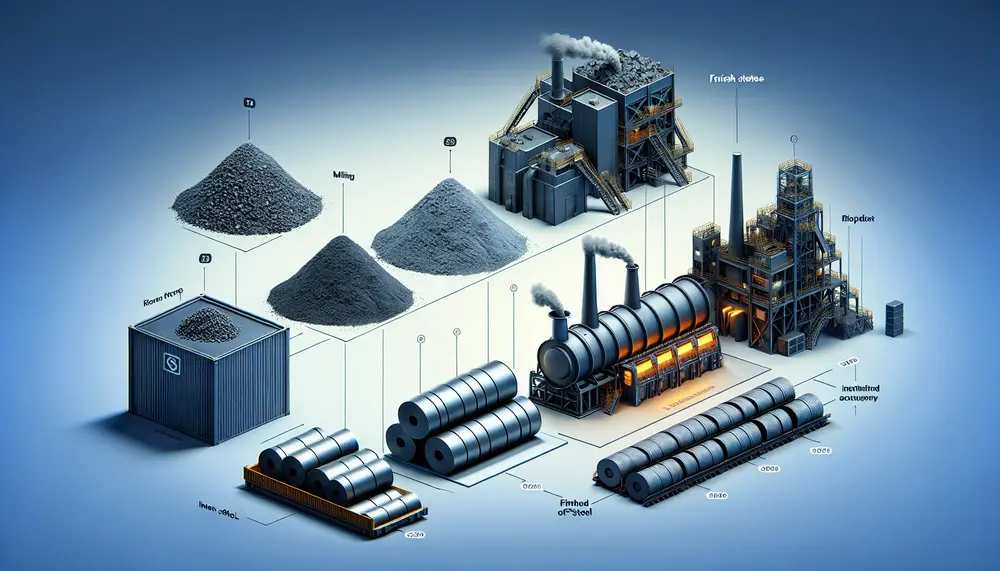
The steelmaking value chain is a complex process that transforms raw materials like iron ore, coking coal, and limestone into high-quality steel through strategic steps involving technological innovation to optimize efficiency and reduce environmental impact. Understanding this value chain helps...
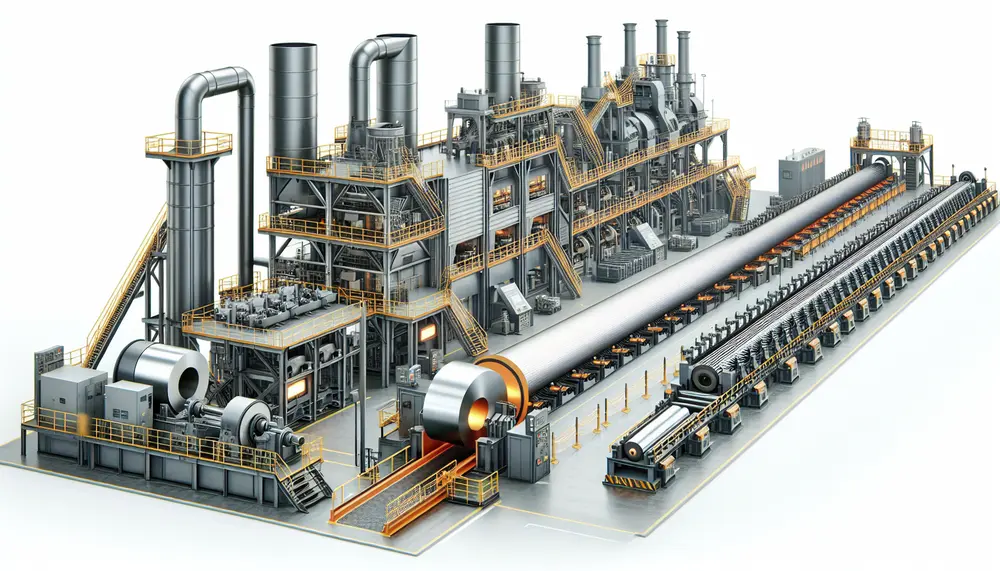
Steel manufacturing is a complex process that transforms iron ore into steel, involving precise heating and mixing to create different grades for various applications. The journey includes primary methods like Basic Oxygen Steelmaking (BOS) and Electric Arc Furnace (EAF), followed...
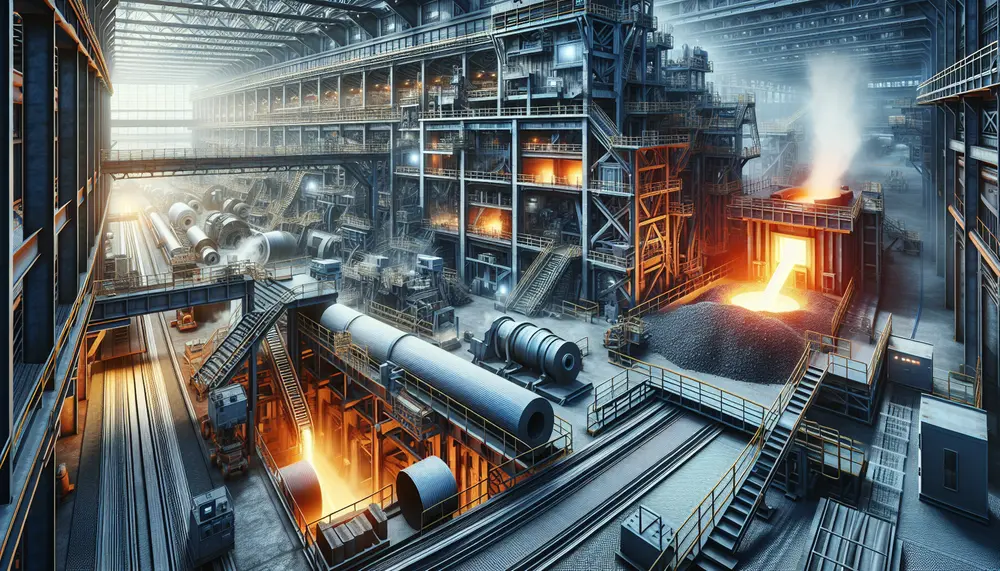
JSW Steel employs advanced technology and sustainable practices in its steel manufacturing process, starting with the selection of raw materials like iron ore and coal. The company focuses on producing high-quality steel through a series of steps including melting, refining,...
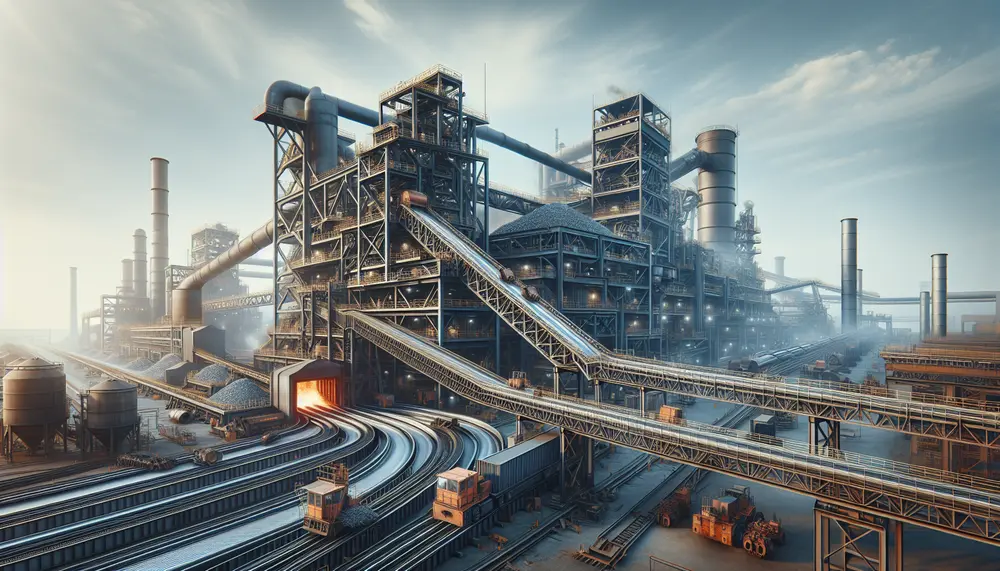
Steel manufacturing from scrap is a sustainable process that reduces environmental impact and conserves resources. It involves collection, separation, melting in an electric arc furnace, refining to remove impurities, adding alloy elements, and casting into new products; recycling steel offers...
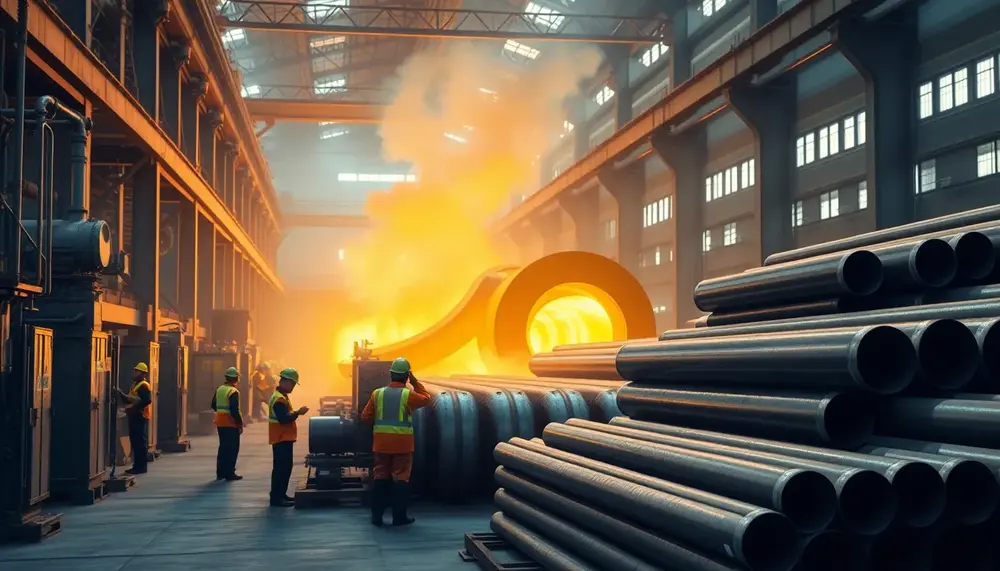
Steel tube manufacturing is essential for industries like construction, energy, and transportation, offering seamless tubes for strength and welded ones for cost-efficiency. The processes involve precise engineering to ensure durability, versatility, and performance tailored to specific applications....
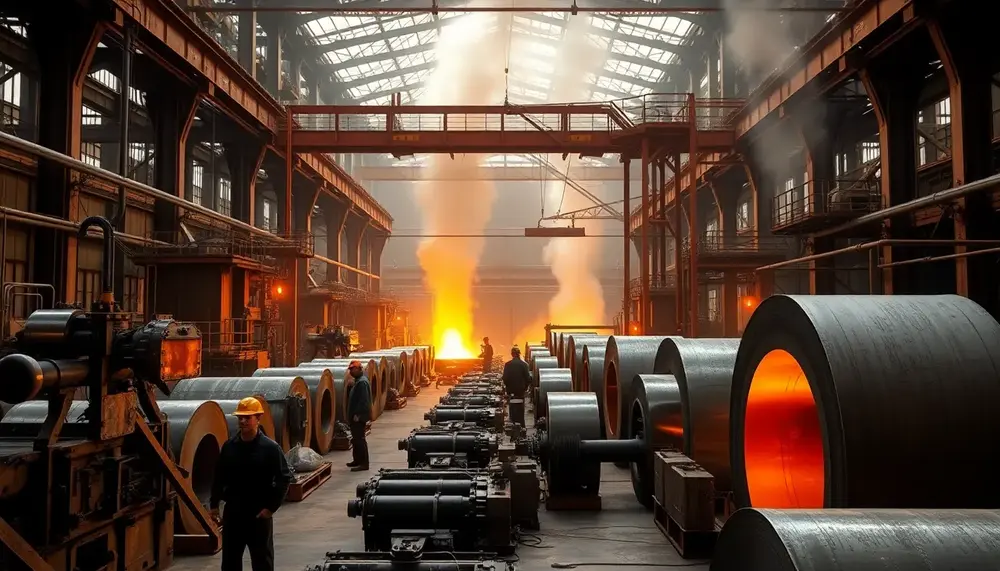
Steelmaking transforms raw materials like iron ore, coal, and limestone into steel using methods such as the Basic Oxygen Furnace (BOF) and Electric Arc Furnace (EAF), with modern technologies enhancing efficiency and sustainability while addressing environmental concerns....

Steel fabrication involves transforming raw steel into structures or products using various techniques like cutting, bending, and joining to ensure strength and quality. Material selection is critical in this process as it affects the performance and longevity of the final...
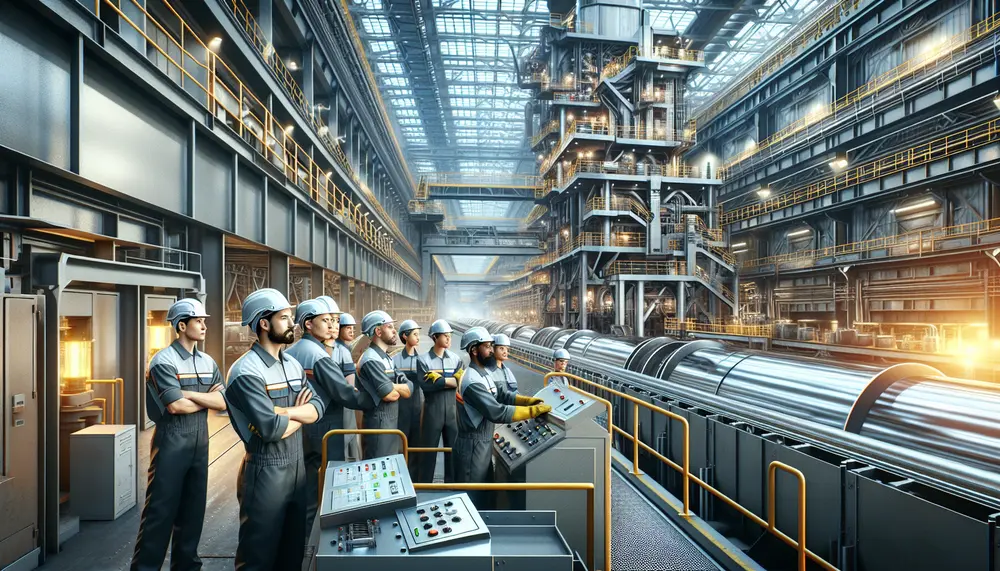
Stainless steel making is a complex process that begins with melting iron ore and other elements like chromium and nickel to create a durable, corrosion-resistant material. This involves several stages including refining, casting, and rolling, controlled by precise temperature and...
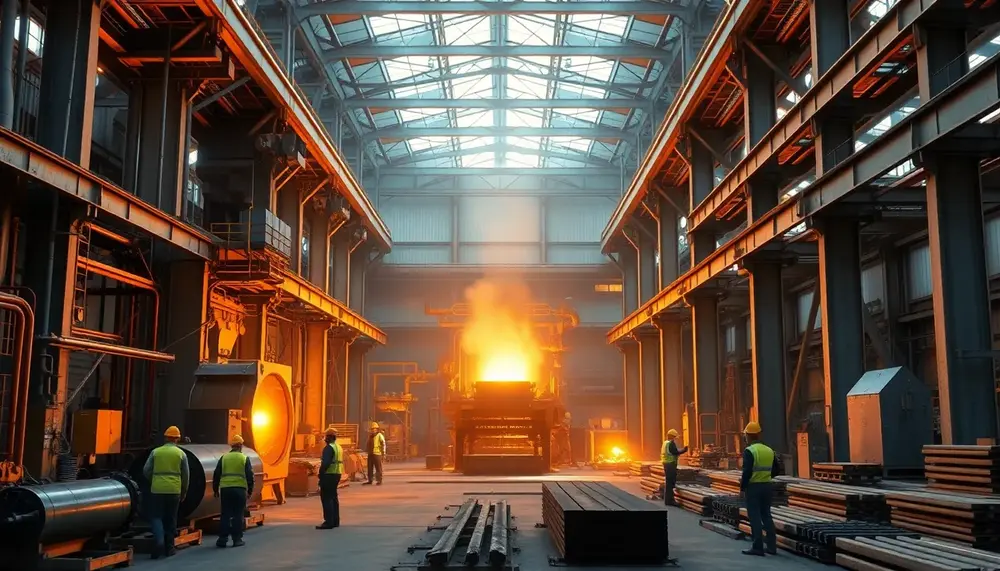
Modern steel factories combine advanced technology, automation, and strict quality control to transform raw materials into high-quality steel with precision and efficiency....
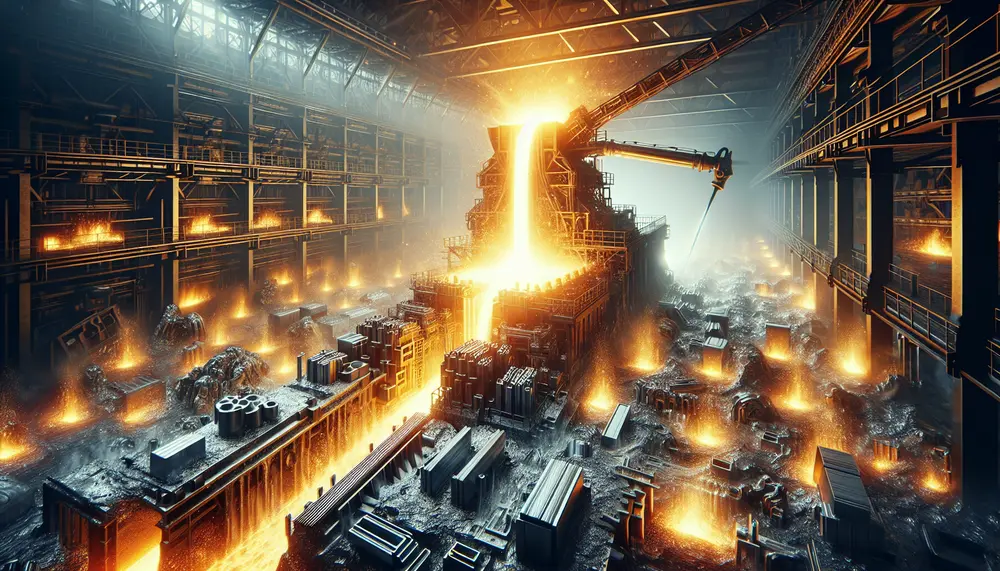
The steel production casting process involves melting raw materials, refining the molten metal, and pouring it into molds to shape solid products with controlled cooling to prevent defects. The variety of cast steels is determined by carbon content and alloying...
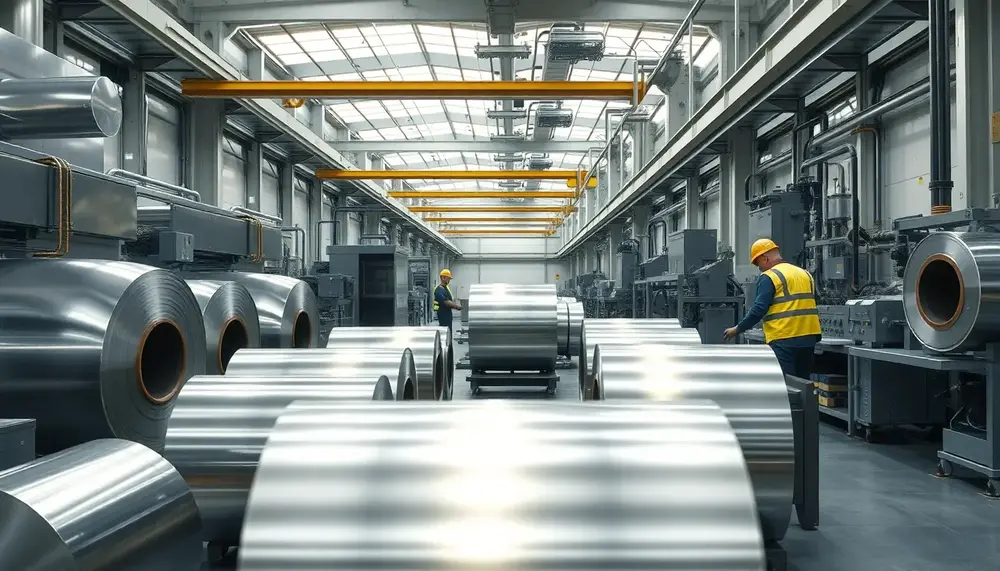
A well-structured PowerPoint on stainless steel manufacturing uses clear visuals and icons to simplify complex processes, enhance understanding, and support actionable insights....
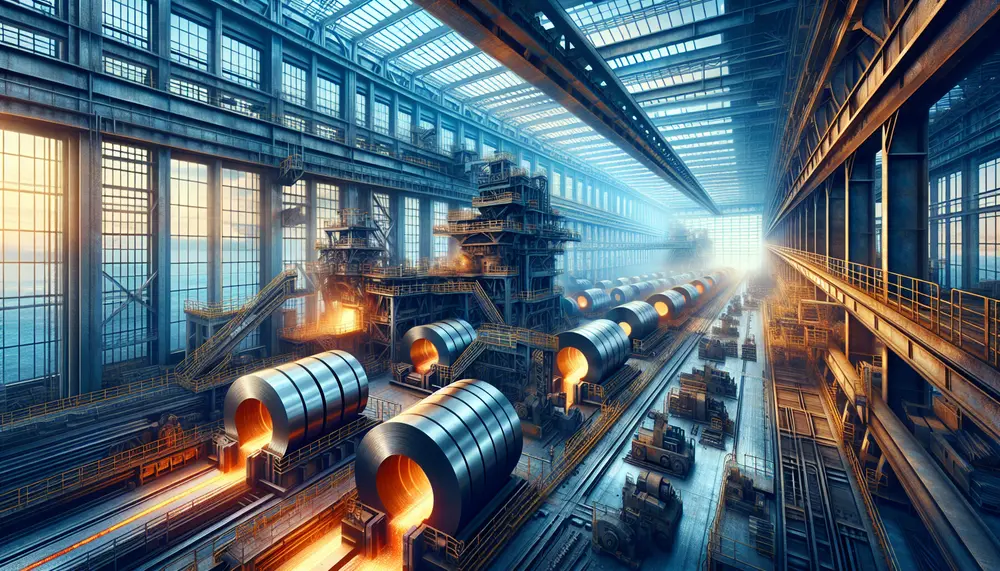
Steel products manufacturing transforms raw materials into essential items for modern life, involving a process from conceptualization to final product creation. The steel making process is an intricate journey that includes extraction of iron ore, refining in blast furnaces or...
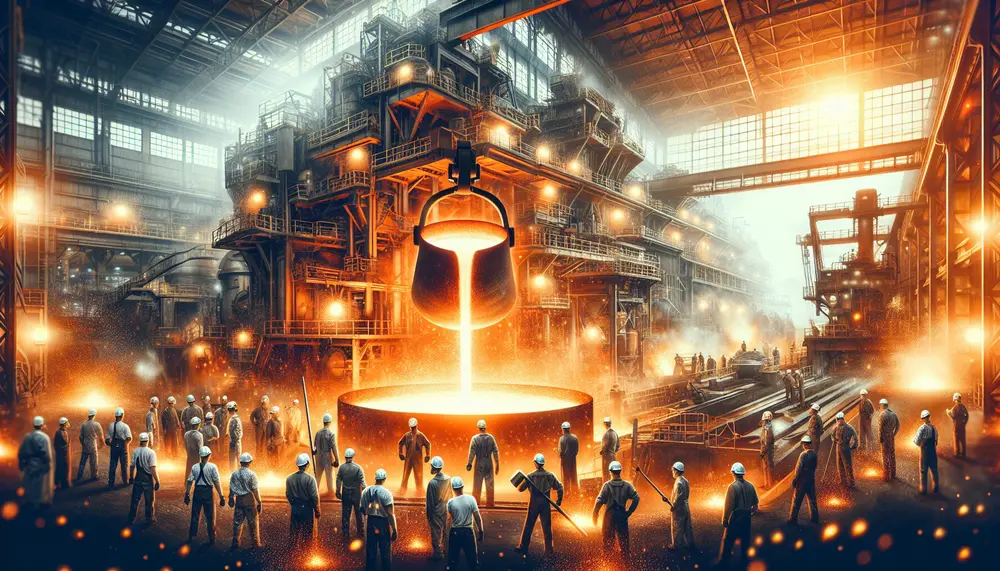
Steelmaking is a complex process involving several critical steps, from extracting iron to refining and shaping it into high-quality steel. Key stages include ironmaking, primary and secondary steelmaking, casting, forming, finishing, selecting appropriate materials like iron ore and coke, and...
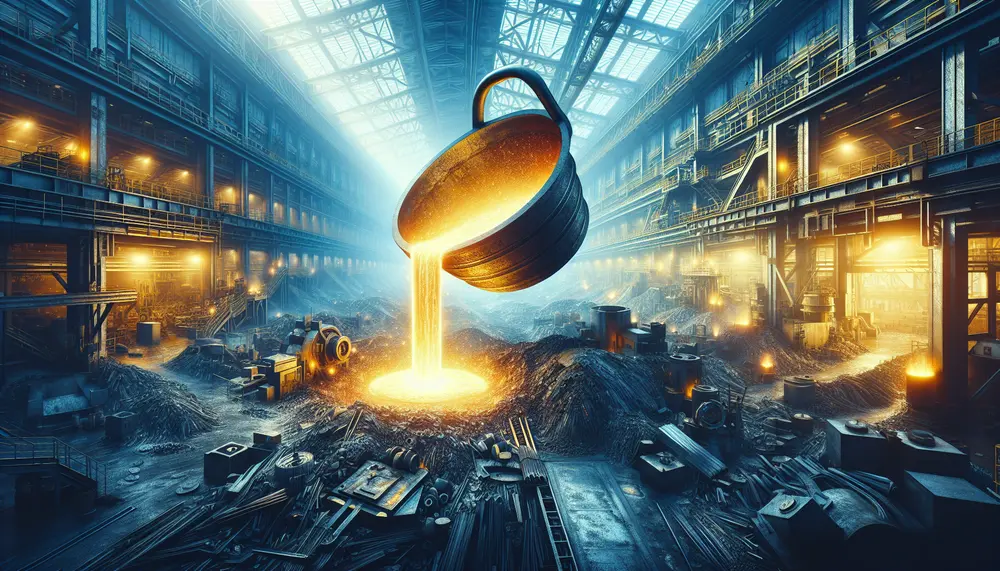
Metal manufacturing involves techniques like forming, machining, casting, joining, and finishing to create products from raw materials. Understanding these processes is essential in the industry; additional methods include extrusion, stamping, deep drawing, and shearing. Heat treatment alters metal properties through...

